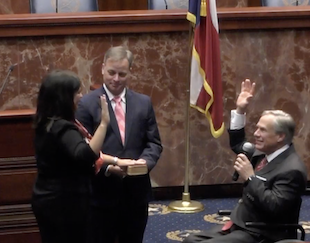Texas SG Hawkins ‘Under Siege’ from Supreme Court Justices in Affordable Care Act Case
Oral arguments over the Texas-led challenge to the Affordable Care Act appeared to be an uphill battle for Texas Solicitor General Kyle Hawkins Tuesday. Questions about the Texas arguments, even from the conservative end of the bench, appeared to be "bludgeoning him," in the words of one observer. Texas Lawbook Supreme Court reporter Tony Mauro explains.

